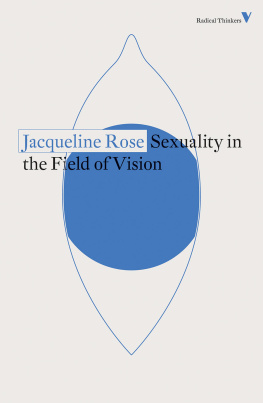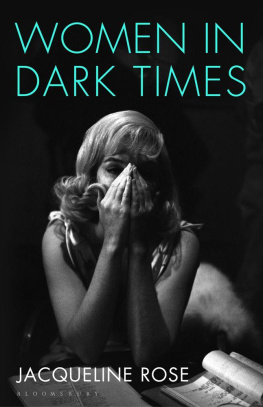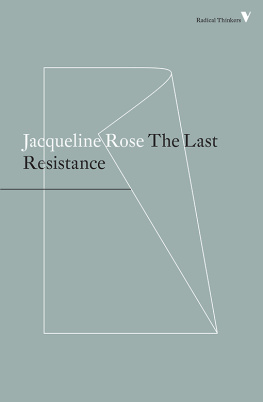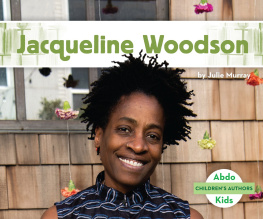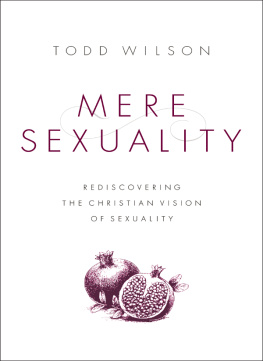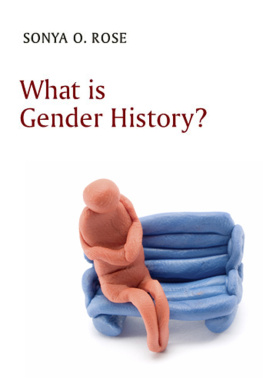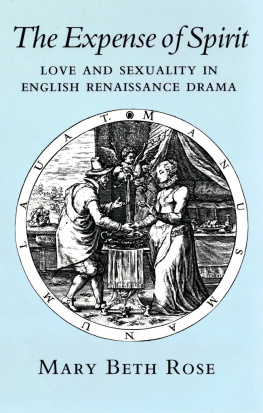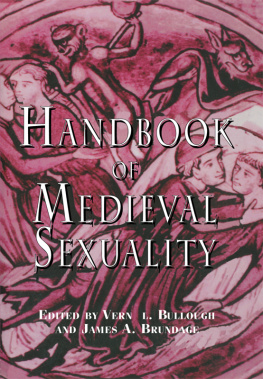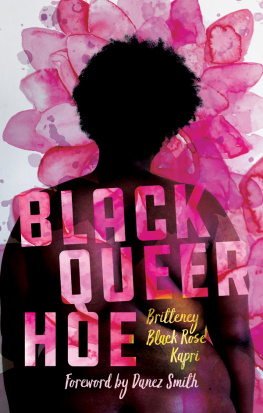Jacqueline Rose - Sexuality in the Field of Vision
Here you can read online Jacqueline Rose - Sexuality in the Field of Vision full text of the book (entire story) in english for free. Download pdf and epub, get meaning, cover and reviews about this ebook. publisher: Verso Books, genre: Religion. Description of the work, (preface) as well as reviews are available. Best literature library LitArk.com created for fans of good reading and offers a wide selection of genres:
Romance novel
Science fiction
Adventure
Detective
Science
History
Home and family
Prose
Art
Politics
Computer
Non-fiction
Religion
Business
Children
Humor
Choose a favorite category and find really read worthwhile books. Enjoy immersion in the world of imagination, feel the emotions of the characters or learn something new for yourself, make an fascinating discovery.
- Book:Sexuality in the Field of Vision
- Author:
- Publisher:Verso Books
- Genre:
- Rating:3 / 5
- Favourites:Add to favourites
- Your mark:
- 60
- 1
- 2
- 3
- 4
- 5
Sexuality in the Field of Vision: summary, description and annotation
We offer to read an annotation, description, summary or preface (depends on what the author of the book "Sexuality in the Field of Vision" wrote himself). If you haven't found the necessary information about the book — write in the comments, we will try to find it.
Sexuality in the Field of Vision — read online for free the complete book (whole text) full work
Below is the text of the book, divided by pages. System saving the place of the last page read, allows you to conveniently read the book "Sexuality in the Field of Vision" online for free, without having to search again every time where you left off. Put a bookmark, and you can go to the page where you finished reading at any time.
Font size:
Interval:
Bookmark:

Jacqueline Rose

First published by Verso 1986
This edition published by Verso 2020
Jacqueline Rose 1986, 2020
All rights reserved
The moral rights of the author have been asserted
1 3 5 7 9 10 8 6 4 2
Verso
UK: 6 Meard Street, London W1F 0EG
USA: 20 Jay Street, Suite 1010, Brooklyn, NY 11201
www.versobooks.com
Verso is the imprint of New Left Books
ISBN-13: 978-1-78873-862-0
ISBN-13: 978-1-78960-526-6 (US EBK)
ISBN-13: 978-1-83976-301-4 (UK EBK)
British Library Cataloguing in Publication Data
A catalogue record for this book is available from the British Library
Library of Congress Cataloging-in-Publication Data
A catalog record for this book is available from the Library of Congress
For my mother
We would like to thank the following publishers and journals for permission to reprint these essays: Dora Fragment of an Analysis, m/f; Femininity and its Discontents, Feminist Review; Feminine Sexuality Jacques Lacan and the cole freudienne, Macmillan Press and W W Norton; The Imaginary and The Cinematic Apparatus Problems in Current Theory, Macmillan Press and St. Martins Press.
Many people are associated for me with these essays, whether through their encouragement, intellectual advice, or friendship and support. In particular I would like to thank Parveen Adams, Ben Brewster, Constance Penley and Peter Wollen. A number of groups and individual people have at various times been part of a crucial context of discussion and work or have offered detailed advice in relation to separate articles: the Lacan womens study group which met in London between 1975 and 1977; the women at the conference on The Cinematic Apparatus held at the University of Wisconsin-Milwaukee in 1978; the students on the Studies in Feminism course at the University of Sussex, especially in the year 1982-83, and Homi Bhabha, Jonathan Dollimore and Cora Kaplan. I owe a special debt to Juliet Mitchell.
Finally, my thanks, and much more, to Sally Alexander and Robert Young.
In her Tribute to Freud, the American woman poet H.D. writes of the one moment when Freud laid down the law during the brief analysis she conducted with him in 1933. This law (he does not lay down the law, only this once only this one law), coming from someone who still stands in the image of a patriarch with which feminism has not yet settled its accounts, was in fact no law, but a plea a plea that H.D. should never defend Freud and his work at any time, in any circumstance. Freud goes on to explain this plea with the precision of a lesson in geometry or of a demonstration of the inevitable course of a disease once a virus has entered the system. A law which takes the form of a plea that there should be no defence, or which hovers between geometrical precision and the course of a disease these are contradictions which we might expect from any discussion which has psychoanalysis as its object or which tries to place itself within its terms.
But there is something outrageous in Freuds demand that psychoanalysis cannot be defended on the grounds that defence will drive the hatred or the fear or the prejudice in deeper, since it snatches from the opponent the very rationality by which a critique, no less than a defence, of psychoanalysis should take place.psychoanalysis back fiercely into its own practice and leaves her with an impasse which H.D. will then resolve more or less and in her own waythrough literary writing, memoirs and, finally, a tribute. A tribute, we could say, is one possible response, and perhaps the only possible response, to the laying down of the law.
On the other hand, Freuds injunction and H.D.s place within it reveal a dilemma or set of problems in which all the essays that follow are equally caught. First, the problem of writing of psychoanalysis in a context which exceeds its primary institutional and therapeutic domain. Second, the problem of writing in the form of a defence with regard to something the psychoanalytic concept of the unconscious which brooks no defence and constantly breaks down the law. Third, the problem of writing as a woman within the terms and discourse largely of two men Freud, and then the French psychoanalyst Jacques Lacan who also saw his work as a tribute or return to Freud, as nothing less than the preservation of a tradition entrusted to our keeping. Scandalous for many other men of their time, they nonetheless embody the image of the patriarch whose insidious effects at the level of our psychic life they each attempted with more or less success to undo or defy.
The question which this introduction will attempt to address, therefore, is what could be the purchase of psychoanalysis outside its own specific domain. More specifically, the argument is for psychoanalysis in relation to feminism, and the importance of these together for the larger terms of contemporary political debate. We are in fact witnessing a moment when psychoanalysis is being assimilated into literary methodas it has been before at the same time as the critique of psychoanalysis outside the academy by feminists and others is being renewed or increased. Feminism inherits and inflects a set of political challenges to psychoanalysis with a long and complex history which this introduction will also attempt to trace. The point being not to serve the essays themselves, but rather to situate them within an ongoing history and set of problems which I see them as part of today.
against the transformation of Lacans theory into style (Lacanianism no less) and that view, which has been so influential outside of France under the brief of New French Feminisms, which sees theory itself as a masculine fantasy to which the only response for many women is the dissolution, not just of institutions, but of language itself.
For both writers, however, and despite the different personal decisions to which they individually came, the issue of institutional power is one in which the question of language and its limits is centrally at stake. On nest fou que de sens (Only meaning drives you mad or No madness without meaning), writes Montrelay the unconscious is the only defence against a language frozen into pure, fixed or institutionalised meaning, and what we call sexuality, in its capacity to unsettle the subject, is a break against the intolerable limits of common sense.
Franois Roustang has described the way that this problem how to create an institution in which the effects of the unconscious can be spoken without fossilizing into hereditary transmission and style has marked the whole history of the psychoanalytic In this case, however, it is clear that the question of the unconscious brings with it fantasies and images of sexual difference. Above all it leads to a question: how to situate oneself as a woman between the Christlike figure with its powerful and oppressive weight, and the too easy assimilation of the underside of language to an archaic femininity gone wild. That there is another scene to the language through which we most normatively identify and recognise ourselves is the basic tenet of Freudian psychoanalysis. But it is rarely demonstrated with such startling clarity how far the effects of the unconscious are tied into the key fantasies operating at the heart of institutions, and how these in turn are linked into the most fundamental images of sexual difference (adoration to the male, chaos or exclusion to the female) on which the wider culture so centrally turns.
Font size:
Interval:
Bookmark:
Similar books «Sexuality in the Field of Vision»
Look at similar books to Sexuality in the Field of Vision. We have selected literature similar in name and meaning in the hope of providing readers with more options to find new, interesting, not yet read works.
Discussion, reviews of the book Sexuality in the Field of Vision and just readers' own opinions. Leave your comments, write what you think about the work, its meaning or the main characters. Specify what exactly you liked and what you didn't like, and why you think so.

